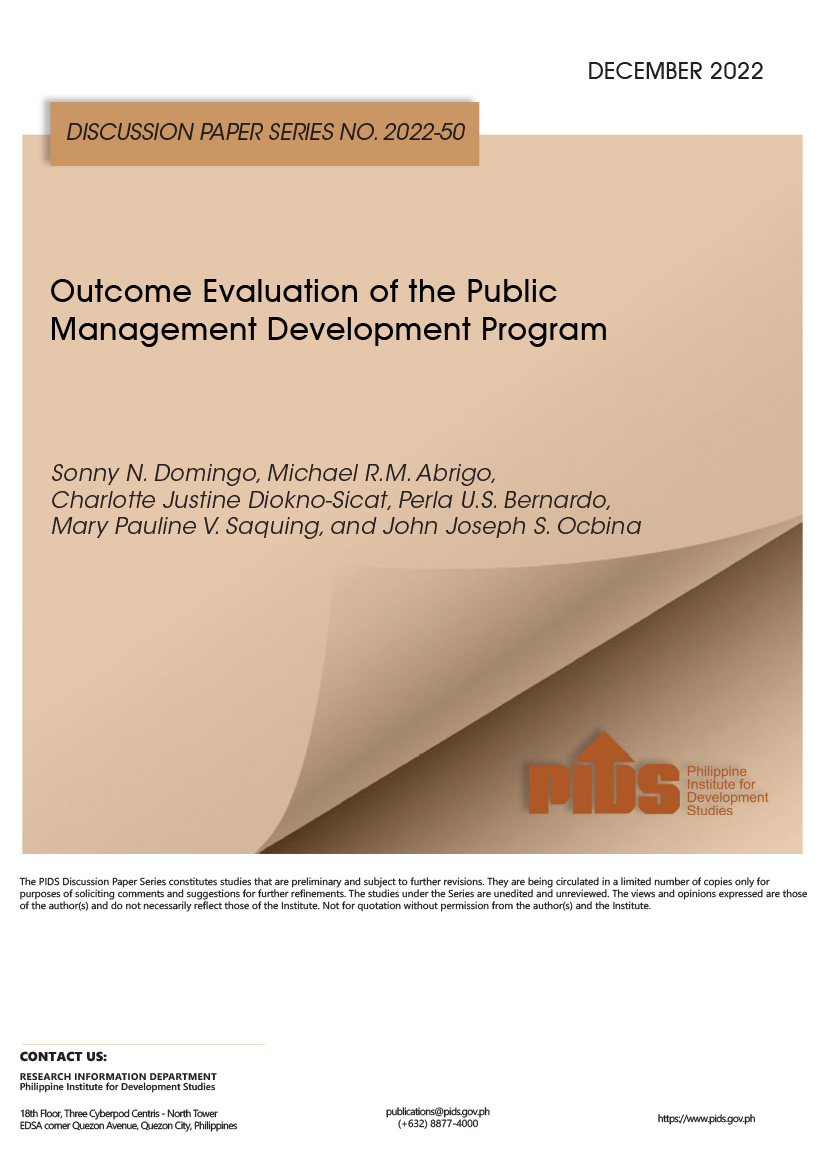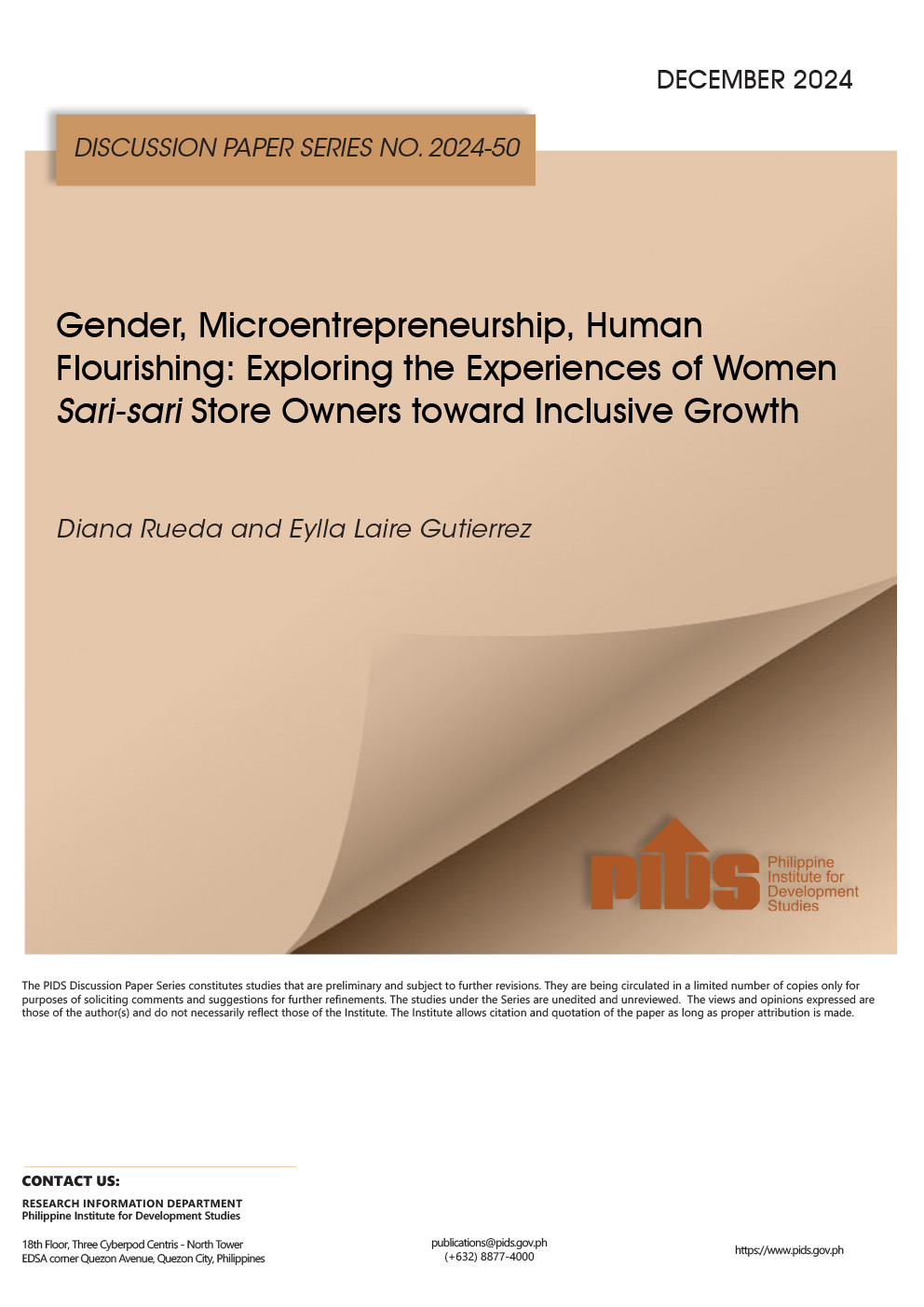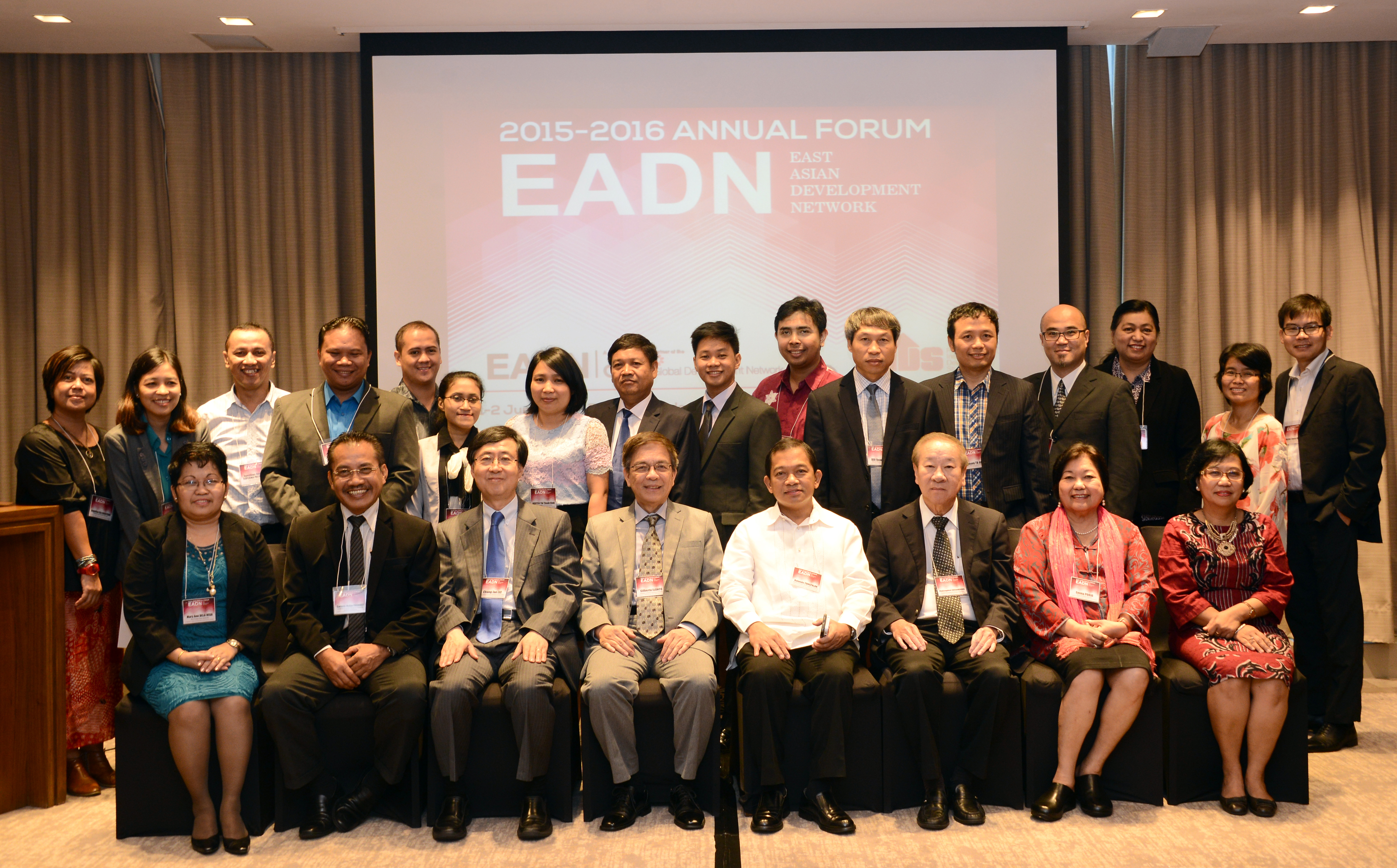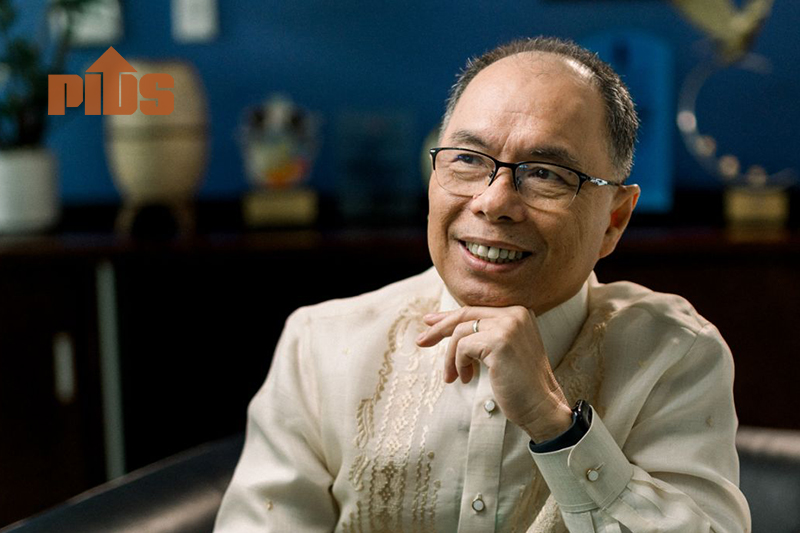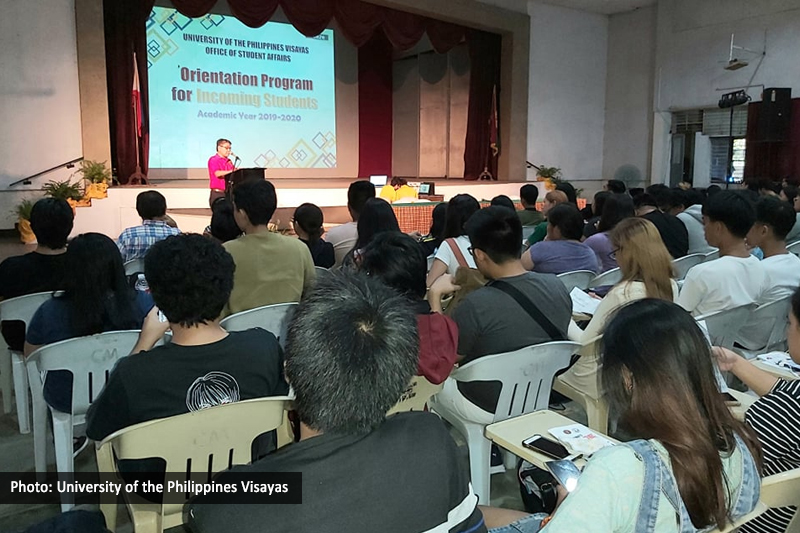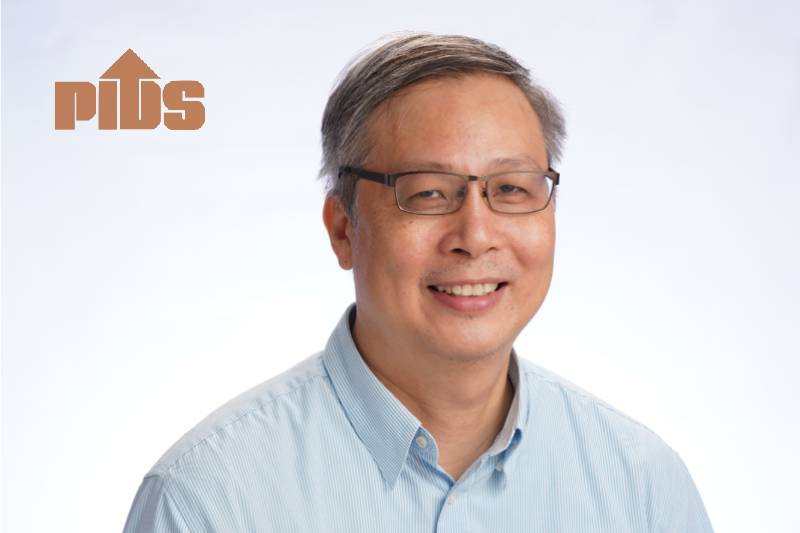
“PIDS stands as a beacon of credible, independent, and evidence-based policy research—it is a legacy we must continue to honor and strengthen,” Dr. Philip Arnold “Randy” Tuaño emphasized as he officially took his oath as the new President of Philippine Institute for Development Studies (PIDS).
He was sworn in by Dr. Arsenio M. Balisacan, Secretary of the Department of Economy, Planning, and Development and Chairperson of the PIDS Board of Trustees. “I have known Randy for a long time,” said Sec. Balisacan. “[From the time] he was at the School of Economics. I watched him grow professionally, and I have seen his leadership at the National Anti-Poverty Commission (NAPC).”
That long familiarity now comes full circle. Dr. Tuaño steps into the role of the eighth president of PIDS.
Long before his appointment, Dr. Tuaño had already built a life rooted in public service and evidence-based research. Now, he leads the country’s premier socio-economic think tank with a proven and grounded leadership and an unwavering commitment to people-centered policy.
As he begins his term, Dr. Tuaño is committed to deepening the impact of PIDS in shaping public policy, not only in long-term planning and programming, but also in the day-to-day issues that directly affect the welfare of Filipinos.
“This is both a responsibility and privilege to lead an institution whose research can shape the direction of our country’s future,” Dr. Tuaño said.
From the classroom to policy corridors
With over three decades of experience as an economist, policy adviser, and academic leader, Dr. Tuaño brings both intellectual depth and field perspective to his new role.
He earned his PhD and MA in Economics from the University of the Philippines, a master’s degree in Development Economics from the University of Sussex, and his undergraduate degree from Ateneo de Manila University.
His scholarly work on labor markets, governance, climate adaptation, and public finance has been featured in journals such as the Journal of the Asia Pacific Economy, Asian Journal of Comparative Politics, Social Transformations: Journal of the Global South, Journal of Management for Global Sustainability, Journal of Southeast Asian Economies, Philippine Journal of Development, and Japan Social Innovation Journal.
He most recently served as Dean of the Ateneo School of Government, where he led initiatives on inclusive democracy, health, governance, national security, local governance and BARMM.
Prior to his return to academia, he held key positions at the NAPC, Human Development Network, the Foundation for Media Alternatives, the International Center for Innovation, Transformation and Excellence in Governance, and the KASAGANA-KA Mutual Benefit Association. His wide-ranging work in policy, advocacy, and institutional-building has shaped a leadership style that is grounded, inclusive, and forward-looking.
Leadership for a Changing Policy Landscape
Secretary Balisacan expressed his full support for Dr. Tuaño’s appointment, emphasizing that he takes on the role at a pivotal moment as the administration intensifies its focus on education, health, and agriculture—alongside emerging issues like e-commerce, artificial intelligence, and technological disruptions.—
Dr. Tuaño is committed to complementing PIDS’s research focus on inclusive economic growth and human development with a greater emphasis on sustainability, global environment, governance reforms, and socioeconomic transformation, especially in areas affecting vulnerable sectors.
Building on the Institute’s strong track record of partnerships with government agencies, the private sector, academic institutions, and civil society, Dr. Tuaño seeks to further broaden the Institute’s network through new, diverse, and interdisciplinary collaborations.
As a research-driven institution, he emphasized that PIDS must evolve with the changing times.
“We will continue to uphold the highest standards of academic integrity, transparency, and agility, especially as the policy landscape evolves rapidly,” he said.
He aims to continue nurturing “a workplace culture that encourages creativity, interdisciplinary thinking, and professional growth” to produce high-impact results for the Filipino public.
A new chapter for the Institute is about to unfold—one shaped by scholarly excellence, wider stakeholder engagement, and renewed commitment to policies that uplift the Filipino people. —AABM
This article is the second of our two-part PIDS in Transition feature. Missed Part 1? Catch up here: https://bit.ly/PIDSinTransition1of2.

